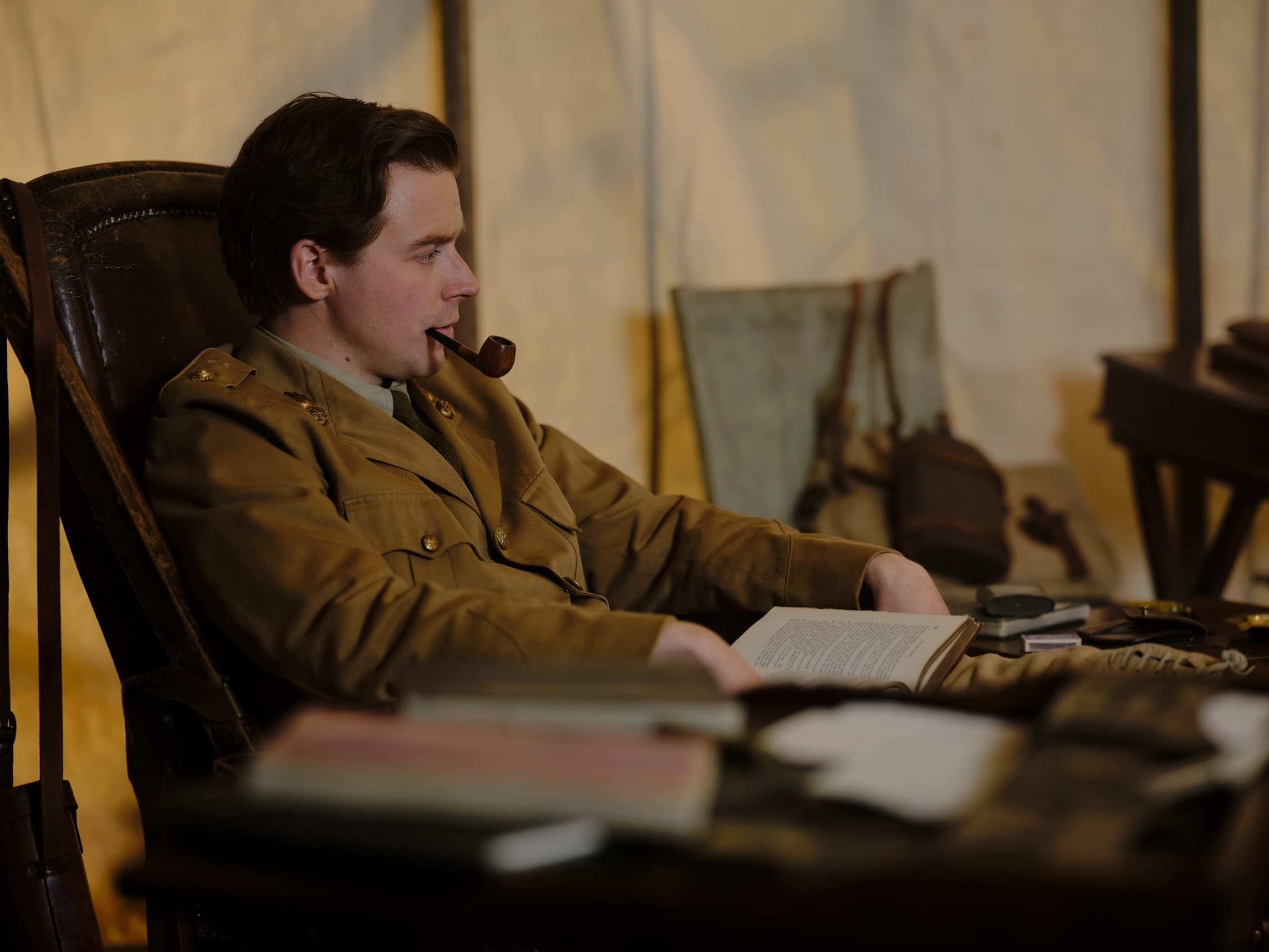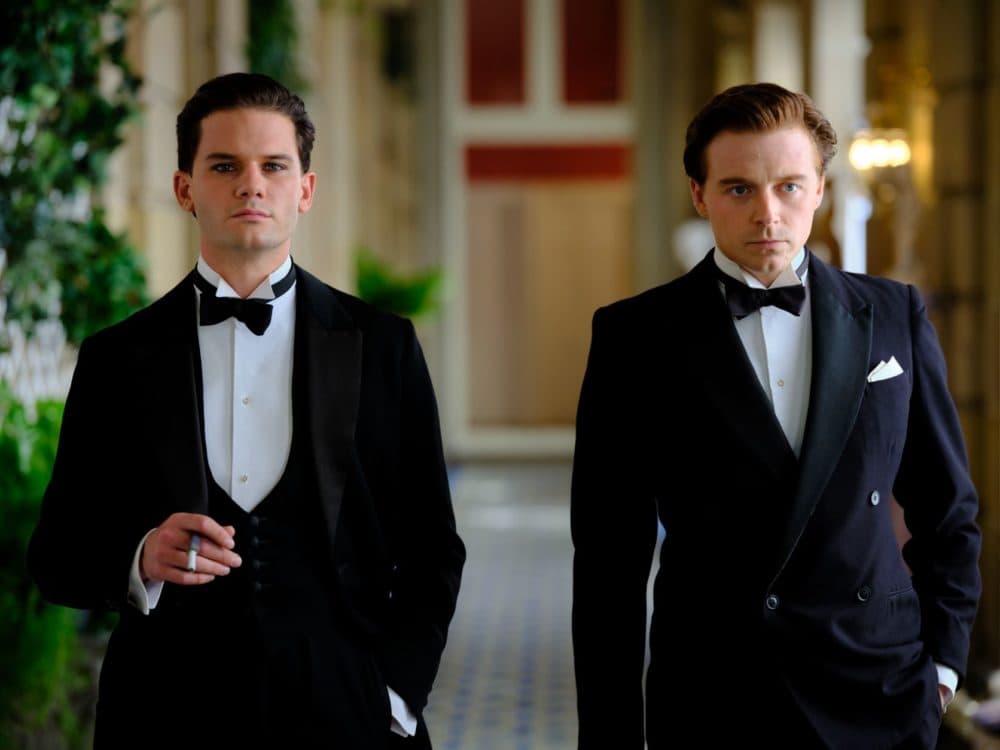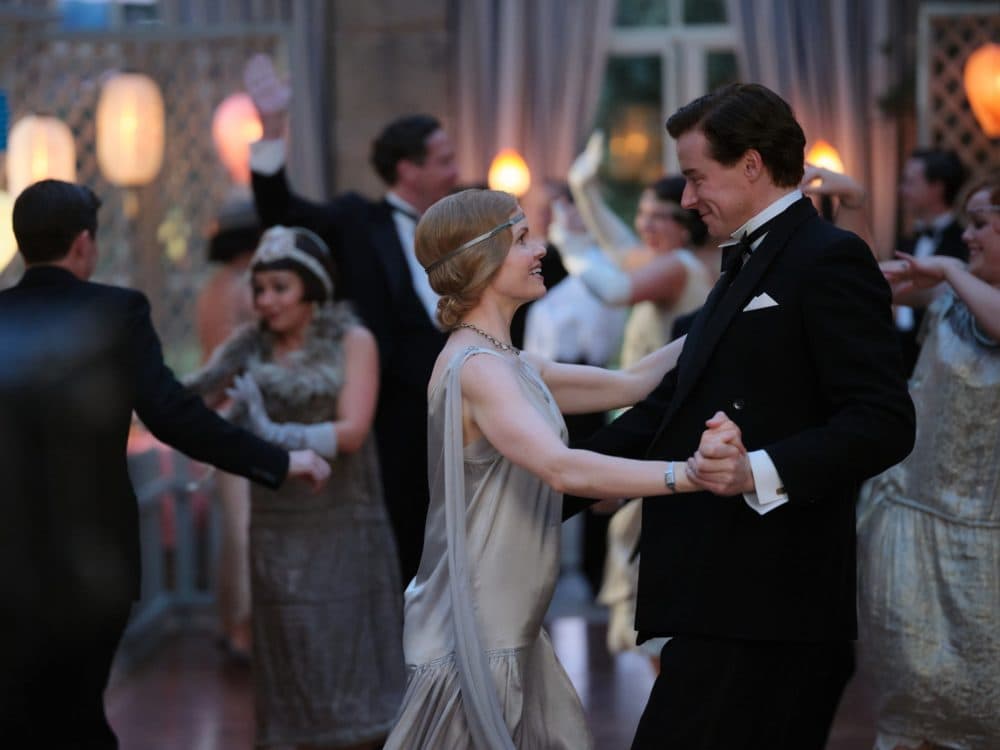Advertisement
Review
'Benediction' is a boldly stylized biopic of 20th-century war poet Siegfried Sassoon

The problem with most films about writers is that they’re so concerned with biographical data and dramatic comings and goings that there’s no room left for words, which aren’t just an author’s stock in trade but also ostensibly the reason we’re supposed to care about this person in the first place. “Benediction” director Terence Davies’ splendidly scripted, boldly stylized biopic of the early 20th-century war poet Siegfried Sassoon is a movie madly in love with words in all their pleasures and poisons. It’s about words as weapons, how they can prick and protect and give us places to hide. This is a fine film to watch but an even more enjoyable one to listen to.
The picture opens at an opulent London production of Stravinsky’s “The Rite of Spring,” yet when the curtain rises, instead of an orchestra we see jittery old archival footage from before WWI as star Jack Lowden, who plays the young Sassoon, recites lines from a poem harkening back to a time “when God was in his heaven and there were sausages for breakfast.” But his reverie is quickly interrupted by World War I. Davies notably never stages the trench combat trauma that informed Sassoon’s writing, instead opting for stock footage and black-and-white stills laid beneath the poetic accounts, allowing it to loom large over the movie like a ghostly, monstrous memory. The writer’s younger brother is killed at Gallipoli, yet remains resolutely unmourned by our protagonist, whose stiff upper lip is already the strongest muscle in his body.

The writer’s conscientious objections to what he saw as England’s imperial objectives needlessly prolonging the war are hushed up by the influence of his aristocratic family. Sassoon’s shuffled off to a mental hospital instead of being court-martialed, his pacifism classified as “a nervous breakdown.” He’s kept awake all hours by the screaming of the other vets having night terrors, the horrors of this infernal war never far from the surface. It’s here he falls in love for the first time, with fellow poet and wounded soldier Wilfred Owen (Matthew Tennyson) — the two never directly discussing “the love that dare not speak its name” — before Owen is inevitably shipped back to the front lines and killed a week before the war ends.
“Benediction” dances here and there around the next 50 years or so of Sassoon’s life, drifting dream-like into his late conversion to Catholicism. He’s played as an old man by Peter Capaldi, who doesn’t really look anything like Lowden, but that actually helps the case that Davies is making here. He knows we'll have trouble reconciling the cherubic young star’s round cheeks with the sunken, hollow visage of his elderly counterpart. It’s like Sassoon has physically deflated over time, and the movie aims to illustrate how that happened. The director’s previous picture, 2016’s “A Quiet Passion,” was a proudly unpleasant biopic of Emily Dickinson, but his approach here is closer to that of his montage-heavy, semi-autobiographical early films like “Distant Voices, Still Lives” and “The Long Day Closes,” full of readings, recitations and songs performed, sometimes perplexingly, in their entirety.
The most conventional (and conventionally entertaining) chunk of the picture follows the author’s entanglements with what came to be known as the Bright Young Things of 1920s London, immortalized in Evelyn Waugh’s “Vile Bodies.” The film is not particularly interested in establishing these famous figures — Davies either presupposes that the audience already knows all about matinee idol Ivor Novello (Jeremy Irvine) and decadent socialite Stephen Tennant (Calam Lynch) or figures we’ll get the gist of it through the games of musical beds and cutting conversations had by these barely-closeted boys who are almost as interested in tearing each other’s clothes off as they are in tearing each other down. (My favorite of the film’s countless, tossed-off insults is when Sassoon’s writing is described as having "gone from the sublime to the meticulous.”)

Homosexuality was still illegal at the time, and the catty callousness and casual cruelty of these affairs can be seen as a self-protecting deflection of the risk and oppression they were all acting out under. The bristling repartee is at first hilarious, but sours as the scenes wear on. Their wonderful ways with words, so pointed and amusing at first, turns curdled and nasty. Sassoon even eventually surrenders and takes a wife — “the ultimate acquiescence” according to one of his friends — an attempt, like his lurch to the church, at latching on to a traditional stability that stubbornly eludes his restless temperament. (There’s a screamingly funny scene before his wedding, which is looked at askance by several of London’s most notable historical homosexuals, including T.E. Lawrence. “Of Arabia?” a guest asks. “Not recently,” he replies.)
The film feels longer than its 137 minutes, a perhaps unavoidable side effect when your subject is someone ground down by the passage of time. The Stravinsky opening is pointedly contrasted by a penultimate scene in which the elderly, miserable Sassoon suffers through a tacky production of “Stop The World — I Want to Get Off.” He’s a serious man in an unserious era, and when his pudgy, disappointing adult son asks Sassoon why he hates the modern world so much, the writer answers, “because it’s younger than me,” another armored quip from his arsenal. It’s only in the stunning final moments of “Benediction” that we flash back to an extraordinary close-up of Lowden at last letting his guard down, his eyes finally allowing us to see the pain flooding behind all those words.
“Benediction” is now playing at AMC Boston Common, Kendall Square Cinema and other AMC theaters.
